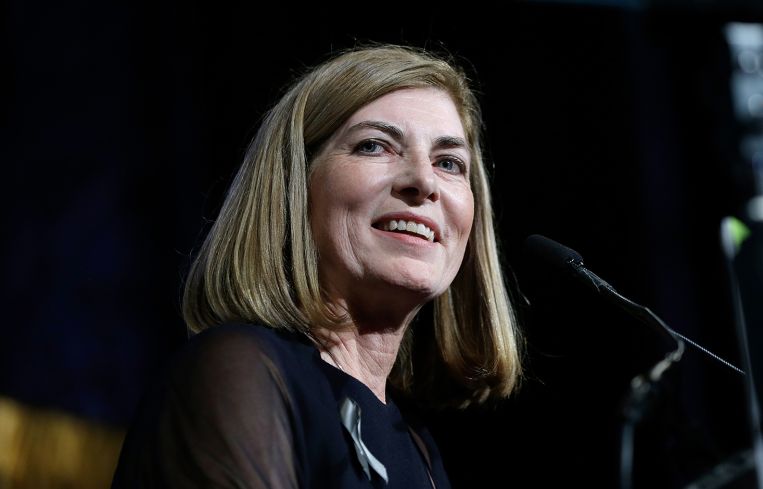Community Solutions Raises $135M to Acquire Affordable Housing Across U.S.
The New York-based nonprofit has housed more than 100,000 people since 2011
By Brian Pascus July 24, 2024 9:00 am
reprints
A nonprofit with humble beginnings in New York City has raised $135 million from private donors to support a fund that purchases multifamily buildings and uses them to house the homeless, veterans and those in need of workforce housing, Commercial Observer has learned.
Community Solutions, a nonprofit founded 14 years ago, closed its Large Cities Fund on Wednesday, after more than two and a half years of fundraising. The nonprofit’s fund secured $135 million from donors such as UnitedHealthcare, Wells Fargo, Kaiser Permanente and Truist. Community Solutions seeded the fund with $10 million from a $100 million grant from the MacArthur Foundation that the nonprofit won in 2020.
Since beginning the fund in early 2022, Community Solutions has housed 342 people and purchased approximately 1,506 apartment units in cities such as Denver, Jacksonville, Charlotte and Nashville.
“The goal is to acquire multifamily properties in selected communities that are priority communities for Community Solutions,” Dave Foster, manager of the Large Cities Fund at Community Solutions, told CO. “The first 50 percent of those units, as they turn over, are connected to the affordable housing system, they’re connected to processes for housing folks who are exiting homelessness, and the remaining 50 percent stay on as permanently affordable, workforce housing.”
Foster explained that Community Solutions works with the federal government, local governments and community leaders to measure which individuals in specific communities are experiencing homelessness and require immediate housing. Through this “continuum of care” model, each locality develops its own set of criteria to figure out which type of housing and tenant would be most helpful for each specific project. Third-party property managers oversee the buildings purchased by Community Solutions.
“It’s working with communities on their data and infrastructure and harnessing the expertise of all the stakeholders in a community to work collectively together to house individuals,” explained Nadine Maleh, principal of housing systems at Community Solutions.
For instance, the Large Cities Housing fund is primarily focused on serving homeless veterans, so Community Solutions pools resources from local Department of Veterans Affairs (VA) offices to figure out which individuals might qualify for housing vouchers and housing support in the areas it buys apartments.
“We’re letting the VA know directly when a unit becomes available and they send over referrals to the property based on the methodology we referenced,” said Foster.
The time it takes Community Solutions to acquire a multifamily building and begin moving in homeless individuals and families takes an average of only 75 days, according to Foster.
“We’re only buying buildings that have already been constructed, so we’re trying to really take advantage of speed and efficiency, and frankly, the gap between existing properties and the cost of new construction, particularly new construction that would use complicated public financing like tax credits,” Foster explained.
Maleh noted that the buildings are not gut-rehabilitation projects, but rather are naturally occurring affordable housing that’s already been established but needs new ownership. She said that the main criteria Community Solutions uses to judge whether an asset is worth purchasing is typically associated with a building’s proximity to job centers, veterans’ services, and public transportation.
“Those are the top criteria for all the buildings,” she said. “And we’re not looking at vacant buildings that need a lot of rehab at all – these buildings [of ours] are predominantly 85 percent to 90 percent occupied, so our capex costs are fairly low on a per-unit basis.”
Community Solutions was founded by Rosanne Haggerty and emerged out of her nonprofit social services organization Breaking Ground (formerly Common Ground) which she began in 1990 to reduce homelessness in New York City. Breaking Ground has created more than 5,000 units of affordable housing in New York, while Community Solutions has housed more than 100,000 Americans since its 2011 founding.
Today, Community Solutions has several properties in Denver and Jacksonville, but has also expanded into Phoenix and Nashville in recent months.
“We’ve zeroed in on a small handful of areas where we have good community buy-in and where we see that tight housing market, where housing supply is a challenge,” said Foster.
In terms of the fundraising, Foster asked investors like The Ford Foundation, Truist and Kaiser Permanente to take below-market returns in exchange for the specific social impact of providing the needy with housing and reducing homelessness across America. The money Community Solutions raises for the fund is solely used on the acquisition. Tenants pay rent every month, but that rent sometimes comes through housing subsidy vouchers or VA housing vouchers. Workforce housing tenants pay rent, as well.
“We’re looking for investors who are inclined to support that work,” said Foster. “Certain folks set aside a pool of capital within the overall investment portfolio, they set aside commitment and say we want to get our money back, get a return on it, and see meaningful impact on the world.”
Community Solutions is already working on raising a second fund with a goal of slightly more than the $135 million the Large Cities Fund captured. Foster acknowledged that there simply isn’t enough affordable housing in the U.S., and this marriage between nonprofit fundraising and private investment could be a solution to the traditional government-run model.
“We set out to build an alternative model to supplement what’s there, and we think this could double the amount of affordable housing in the U.S. if we can continue to grow the scale of it,” said Foster.
“Our bigger goal is to share the model with other communities and investors and have more widespread adoption, so other communities can bring this tool to bear for their betterment,” he added.
Brian Pascus can be reached at bpascus@commercialobserver.com



